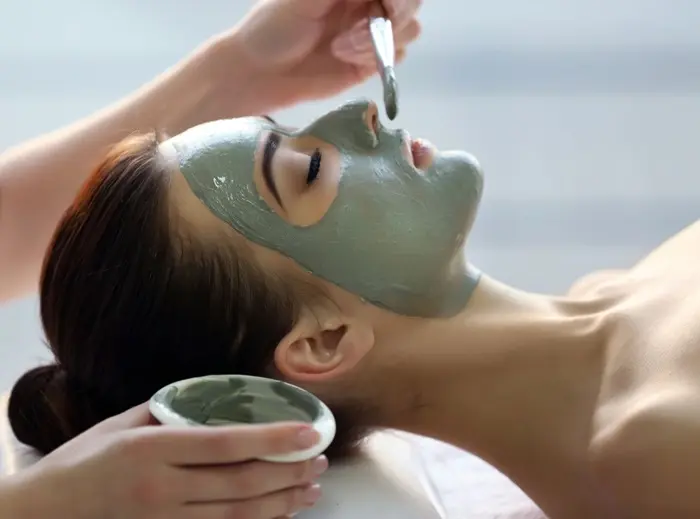Skin care is a vital aspect of maintaining healthy, radiant skin. With countless products available in the market, it can be challenging to determine which ones are essential for an effective skincare routine. This article will explore the top five most important skin care products, detailing their benefits and why they are crucial for maintaining healthy skin.
1. Cleanser
Purpose of a Cleanser
A cleanser is the cornerstone of any skincare routine. Its primary purpose is to remove dirt, oil, makeup, and impurities from the skin, providing a clean slate for the application of other products.
Types of Cleansers
Cleansers come in various forms, including gels, foams, creams, and oils. The choice of cleanser depends on skin type and personal preference:
Gel Cleansers: Ideal for oily and acne-prone skin as they deeply cleanse and control excess oil.
Foam Cleansers: Suitable for combination skin, providing a balance between cleansing and hydration.
Cream Cleansers: Best for dry and sensitive skin, offering a gentle and hydrating cleanse.
Oil Cleansers: Effective for all skin types, particularly beneficial for removing makeup and maintaining moisture balance.
Key Ingredients
Look for cleansers with gentle, non-irritating ingredients such as:
Glycerin: Provides hydration and maintains skin moisture.
Aloe Vera: Soothes and calms the skin.
Salicylic Acid: Helps in controlling acne and exfoliating the skin.
How to Use
Use a cleanser twice daily, in the morning and evening. Apply a small amount to damp skin, gently massage in circular motions, and rinse thoroughly with lukewarm water.
See Also: 8 Steps To Nighttime Skin Care
2. Moisturizer
Importance of Moisturizer
Moisturizers are essential for maintaining the skin’s hydration and preventing dryness. They help to lock in moisture, support the skin barrier, and provide a smooth, supple appearance.
Types of Moisturizers
Moisturizers vary based on their formulation and intended skin type:
Humectants: Attract moisture from the environment into the skin (e.g., hyaluronic acid, glycerin).
Emollients: Smooth and soften the skin by filling in the gaps between skin cells (e.g., ceramides, fatty acids).
Occlusives: Create a protective barrier to prevent moisture loss (e.g., petrolatum, silicone).
Key Ingredients
When choosing a moisturizer, consider the following ingredients:
Hyaluronic Acid: Provides intense hydration and plumps the skin.
Ceramides: Strengthen the skin barrier and retain moisture.
Niacinamide: Improves skin elasticity, enhances barrier function, and evens skin tone.
How to Use
Apply moisturizer after cleansing and any serums or treatments. Use it twice daily, morning and night, to maintain consistent hydration.
3. Sunscreen
Role of Sunscreen
Sunscreen is crucial for protecting the skin from harmful UV radiation. It helps prevent sunburn, premature aging, and reduces the risk of skin cancer.
Types of Sunscreens
Sunscreens are categorized into chemical and physical (mineral) sunscreens:
Chemical Sunscreens: Absorb UV radiation and convert it into heat (e.g., avobenzone, octinoxate).
Physical Sunscreens: Reflect UV radiation away from the skin (e.g., zinc oxide, titanium dioxide).
Key Ingredients
Look for broad-spectrum sunscreens with the following active ingredients:
Zinc Oxide: Provides broad-spectrum protection and is suitable for sensitive skin.
Titanium Dioxide: Offers broad-spectrum protection and is less likely to cause irritation.
Avobenzone: Provides effective UVA protection.
How to Use
Apply sunscreen generously to all exposed skin 15 minutes before sun exposure. Reapply every two hours, or immediately after swimming or sweating. Use sunscreen daily, even on cloudy days, to ensure consistent protection.
4. Exfoliant
Benefits of Exfoliation
Exfoliation helps to remove dead skin cells, unclog pores, and improve skin texture and radiance. It enhances the effectiveness of other skincare products by allowing better absorption.
Types of Exfoliants
Exfoliants can be classified into physical and chemical types:
Physical Exfoliants: Use granular substances to manually slough off dead skin cells (e.g., scrubs with microbeads, sugar, or salt).
Chemical Exfoliants: Use acids or enzymes to dissolve dead skin cells (e.g., AHAs, BHAs, and enzymes).
Key Ingredients
Consider the following ingredients based on your skin type and needs:
Alpha Hydroxy Acids (AHAs): Glycolic acid and lactic acid help to exfoliate the surface of the skin, improve texture, and promote cell turnover.
Beta Hydroxy Acids (BHAs): Salicylic acid penetrates deep into pores, making it ideal for oily and acne-prone skin.
Enzymes: Papain and bromelain gently exfoliate without irritation, suitable for sensitive skin.
How to Use
Exfoliate 1-3 times per week, depending on your skin type and the product’s strength. Apply the exfoliant after cleansing and follow with a moisturizer. Avoid over-exfoliation to prevent irritation and damage to the skin barrier.
5. Serum
Purpose of Serums
Serums are concentrated treatments designed to address specific skin concerns such as aging, hyperpigmentation, hydration, and acne. They contain active ingredients in higher concentrations than other skincare products.
Types of Serums
Serums are formulated to target various skin issues:
Hydrating Serums: Contain ingredients like hyaluronic acid to provide deep hydration.
Anti-Aging Serums: Feature retinoids, peptides, and antioxidants to reduce fine lines and improve skin firmness.
Brightening Serums: Include vitamin C, niacinamide, and licorice root extract to even out skin tone and reduce dark spots.
Key Ingredients
Choose serums based on your specific skin concerns:
Hyaluronic Acid: Hydrates and plumps the skin.
Vitamin C: Brightens the complexion and provides antioxidant protection.
Retinol: Stimulates collagen production and cell turnover for anti-aging benefits.
Niacinamide: Improves skin elasticity, enhances barrier function, and reduces discoloration.
How to Use
Apply serum after cleansing and before moisturizing. Use it once or twice daily, depending on the formulation and your skin’s needs. Allow the serum to fully absorb before applying other products.
Conclusion
Incorporating these top five essential skincare products into your daily routine can significantly enhance the health and appearance of your skin. A well-rounded regimen that includes a cleanser, moisturizer, sunscreen, exfoliant, and serum will help to address various skin concerns, maintain hydration, and protect against environmental damage. Tailor your product choices to your skin type and specific needs for optimal results. Consistency and proper application are key to achieving and maintaining healthy, radiant skin.
Related topics:

